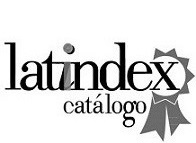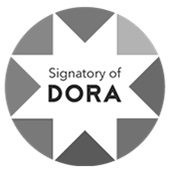Pandemia y vida cotidiana: las cargas de cuidado según las clases sociales y el género en Argentina
DOI:
https://doi.org/10.30972/dpd.13227849Palavras-chave:
tareas de cuidado, clase social, géneroResumo
La bibliografía tanto nacional como internacional mostró que el impacto de la pandemia en las condiciones de trabajo y en las tareas de cuidado fue diferencial según las clases sociales y el género. En Argentina, con el cierre de instituciones educativas, espacios de socialización y medidas de restricción de movilidad, se produjeron cambios profundos en la vida cotidiana, lo que afectó diferencialmente a las personas según su clase social y género. La investigación parte de la idea de que las relaciones de género son fundamentales para comprender la división del trabajo sexual y el reparto de las tareas de cuidado. El artículo mide el impacto de la pandemia en las cargas de cuidado según las clases sociales y sexo en distintas regiones de Argentina. Asimismo, para complementar el análisis cuantitativo, se seleccionaron, a partir de una metodología cualitativa, personas de clase media y clase trabajadora para indagar en los cambios en las condiciones laborales y el desarrollo de las tareas de cuidado. La estrategia metodológica es de diseño mixto, combina el análisis estadístico de una encuesta probabilística a nivel nacional en Argentina (ESAyPP/Pisac-covid-19) y el análisis de 20 entrevistas en profundidad y dos grupos focales, uno de mujeres y otro de varones situados en el Área Metropolitana de Buenos Aires. Los principales resultados muestran que las desigualdades de género previas se reforzaron durante la pandemia, siendo las mujeres quienes asumieron las tareas de cuidado en los hogares. Sin embargo, las cargas de cuidado que tienen las mujeres son diferentes según la clase social de pertenencia, la modalidad de trabajo, la presencia de niñxs en edad escolar y la posibilidad de tercerizar las tareas de cuidado.
Downloads
Publicado
Como Citar
Edição
Seção
Licença
Copyright (c) 2024 Paula Boniolo, Bárbara Ojeda

Este trabalho está licenciado sob uma licença Creative Commons Attribution-NonCommercial 4.0 International License.
La Revista De Prácticas y Discursos. Cuadernos de Ciencias Sociales solicita sin excepción a los autores una declaración de originalidad de sus trabajos, esperando de este modo su adhesión a normas básicas de ética del trabajo intelectual.

Este obra está bajo una licencia de Creative Commons Reconocimiento-NoComercial 2.5 Argentina.





52.jpg)


.png)




